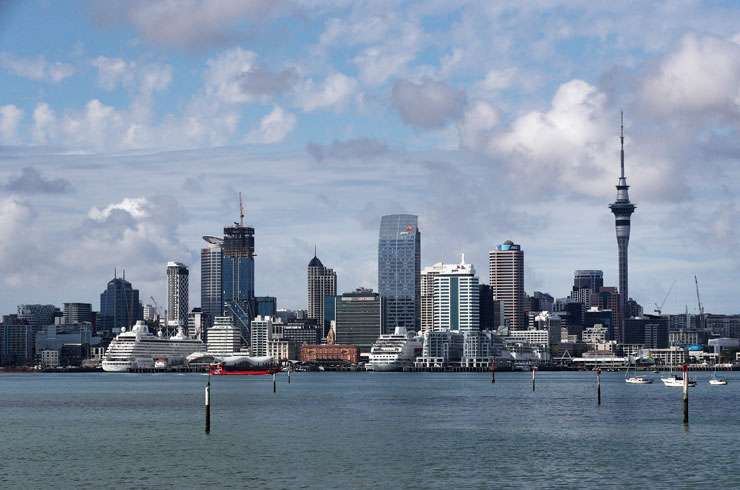No sector of the housing market will be recession-proof, economists have warned as the country prepares to move out of a nationwide lockdown.
Westpac’s chief economist, Dominick Stephens, predicts there will be price volatility at the top and bottom of the market, with smaller houses, more likely to be in the rental market, most at risk of rising and falling. “At the other extreme, the multi-million dollar places, they go up and down by large amounts,” he says.
But Stephens did give a glimmer of hope. Homes in “the leafy suburbs” were likely to be less vulnerable to big price movements.
He says the March sales figures issued by the Real Estate Institute of New Zealand indicated the market was already starting to slow down, before the pandemic made an impact on the country.
Start your property search
“The sales volumes were weak, especially in the South Island,” he says.
Stephens has the sense that, despite anecdotes from around the country, no region will escape the slowdown and that there’ll be a “step change” in all markets. The “hot” regions that were seeing big price increases during the last two years were already starting to post smaller growth rates in the first quarter of the year, more in line with the bigger metro markets.
“The gaps between the regions and the bigger markets were closing to quarterly rises of three to four percent. But popular understanding hadn’t caught up with that.”
Winners and losers
Stephens says there will be winners and losers in the months ahead, even though most people will cautiously sit on the sidelines until there is more certainty in the market.
“In times of turbulence and uncertainty, there’s great volatility, so some people will find deals. Others might find that deal, with hindsight, isn’t as good,” he says.
He predicts Auckland and Wellington “will go from their peak to their trough much faster than the rest of New Zealand”.
He says that in the GFC, Auckland took only 18 months to reach its trough, a 12 percent drop. Wellington had only eight percent drop, in 16 months. But regions like Waikato and Bay of Plenty took 51 to 52 months to drop, losing 14 to 15 percent.
“Auckland property is more liquid, there are just more trades, while other places freeze.”

Population growth – a key driver of housing market activity – will essentially be on hold with the country’s borders now sealed. Photo / Getty Images
Both Stephens and Gareth Kiernan, chief forecaster at economic analysts Infometrics, say that the key number they’ve used in the past for housing forecasting - population growth - no longer applies.
“People will be moving less for the next 12 months and that will slow activity in general,” Kiernan says.
“Longer-term, once the emergency is passed and we’re dealing with the aftermath, New Zealanders will tend to stick closer to home, in their own region,” says Stephens.
Unemployment will be the key driver
Kiernan adds that apart from a short-term spike prior to the lockdown, net migration will now essentially be zero.
“Over the next year, no one will be coming in and no one will be going out. Compared to previous expectations of net migration of around 35,000-40,000, that clearly represents an unanticipated slowdown in population growth, possibly to a 30-year low,” he says.
Kiernan says that the pre-coronavirus rate of building new houses, reaching 38,000 this year, leaves parts of the country with a sizable oversupply of housing as projects are completed. As house prices drop, developers will just finish current projects but not start any more – partly driven by banks being conservative about their exposure to that market.
Both economists say the key driver of the housing market over the next 18 months will be the labour market.
If there’s a big rise in unemployment, says Kiernan, then that will lead to an increase in forced sales.
“The big difference is that the government's wage subsidy scheme potentially limits the job loss, and the mortgage holiday buys people six months,” he says.

Shortage of stock in Auckland may prevent price declines. Photo / Getty Images
Infometrics believes sales volumes for the second quarter of 2020 to be around half of the number recorded for the final quarter of 2019 quarter. However, it expects volumes for the third quarter of 2020 to be down just 18 percent.
Kiernan does not expect prices to drop in the near-term but predicts there will be drops after September. “We’re picking a fall of 11 percent by the end of 2021,” he says.
Kiernan says that some of the so-called booming regions that were “late to the housing party” will be particularly vulnerable, because without population growth in these areas there is no solid justification for their markets to keep growing.
“There is a lot of talk of under-supply in Auckland and Wellington, so that may help prevent price decline there,” he says, adding: “It won’t be until Level 2 when we start to see what the real underlying trend is.”









